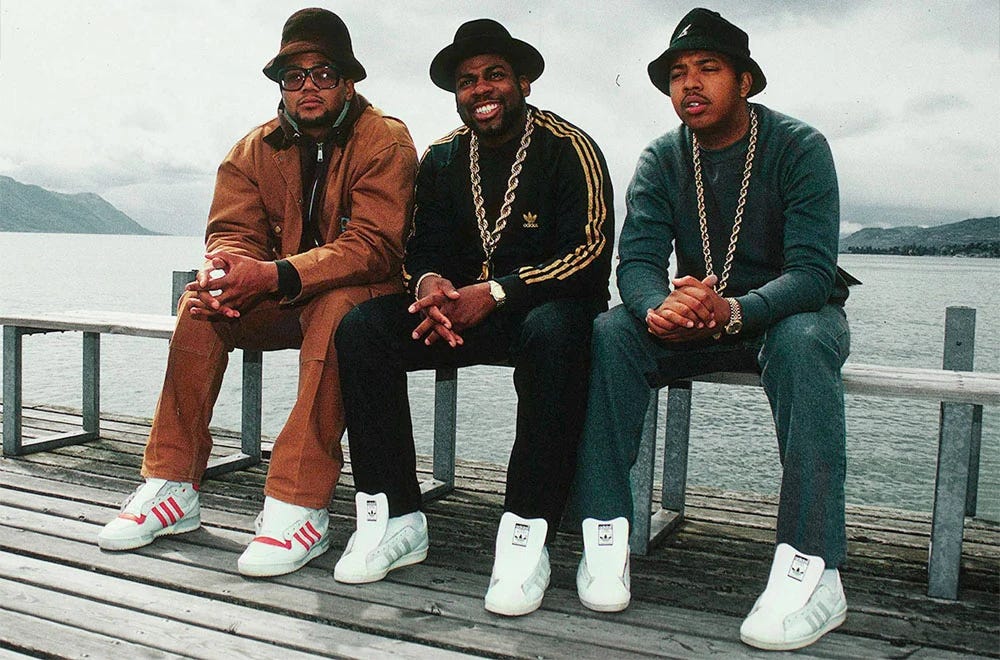Streetwear fashion is more than just clothing; it's a cultural movement that has redefined the way we express ourselves through attire. One of the most significant influences on streetwear style comes from the world of hip-hop music and its associated subcultures. In this blog post, we'll explore the profound impact hip-hop has had on streetwear fashion, from its humble beginnings to its omnipresence in today's global fashion landscape. Hip-Hop and Streetwear: A Symbiotic RelationshipHip-hop and streetwear have an inseparable bond that dates back to the early 1970s in the South Bronx, New York. Both movements share a common origin among marginalized urban youth, seeking a voice and an identity. Hip-hop, as an art form, encompasses not only music but also elements like breakdancing, graffiti, and DJing. Streetwear emerged as the clothing that hip-hop pioneers wore to express themselves while performing and participating in their creative pursuits. Early Hip-Hop FashionIn the nascent days of hip-hop, the fashion was influenced by the limited resources available to the artists. Baggy jeans, oversized T-shirts, and sportswear were staples, reflecting both comfort and the gritty realities of urban life. Sneakers became iconic, as they provided functionality for dancers and reflected a sense of rebellion. The Role of Logos and BrandingAs hip-hop music gained popularity, so did its fashion. Logos and branding played a pivotal role, with artists and fans alike showcasing their loyalty to record labels and clothing brands. This marked the birth of a new trend - the fusion of music and fashion through logos. Brands like Adidas, Nike, and FUBU embraced the movement and became synonymous with hip-hop style. Streetwear Icons EmergeHip-hop artists and groups like Run-D.M.C., LL Cool J, and N.W.A. became fashion influencers. Their unique styles, often consisting of tracksuits, oversized jackets, and gold chains, became iconic streetwear looks. These artists used fashion as a tool to communicate their identity and connect with their audiences on a deeper level. The 90s: A Golden EraThe 1990s saw streetwear fashion rise to new heights. Baggy jeans, Timberland boots, and branded sportswear became emblematic of the hip-hop culture. Streetwear designers like Karl Kani and Cross Colours catered specifically to this audience, creating clothing that celebrated diversity and self-expression. Streetwear Goes MainstreamAs hip-hop became a global cultural phenomenon, so did its fashion. Streetwear transcended its subculture roots and started appearing on fashion runways and in high-end collaborations. Luxury brands like Louis Vuitton and Gucci began incorporating streetwear elements into their collections, demonstrating the genre's influence. The Last WordThe influence of hip-hop on streetwear fashion is undeniable. What started as a form of self-expression for marginalized youth has evolved into a multi-billion-dollar industry with global reach. Today, hip-hop and streetwear continue to shape each other, creating a dynamic and ever-evolving cultural landscape. As you explore streetwear fashion, remember its deep-rooted connection to hip-hop culture. Whether you're rocking oversized hoodies, high-top sneakers, or statement jewelry, you're carrying forward a legacy of self-expression and empowerment that began on the streets of the Bronx. Hip-hop's influence on streetwear is a testament to the power of art and fashion to reflect and shape our world. Embrace it, celebrate it, and make it your own. You're currently a free subscriber to Gravity Sports Group. For the full experience, upgrade your subscription. |
Jumat, 01 September 2023
The Influence of Hip-Hop on Streetwear Fashion
Langganan:
Posting Komentar (Atom)

Tidak ada komentar:
Posting Komentar